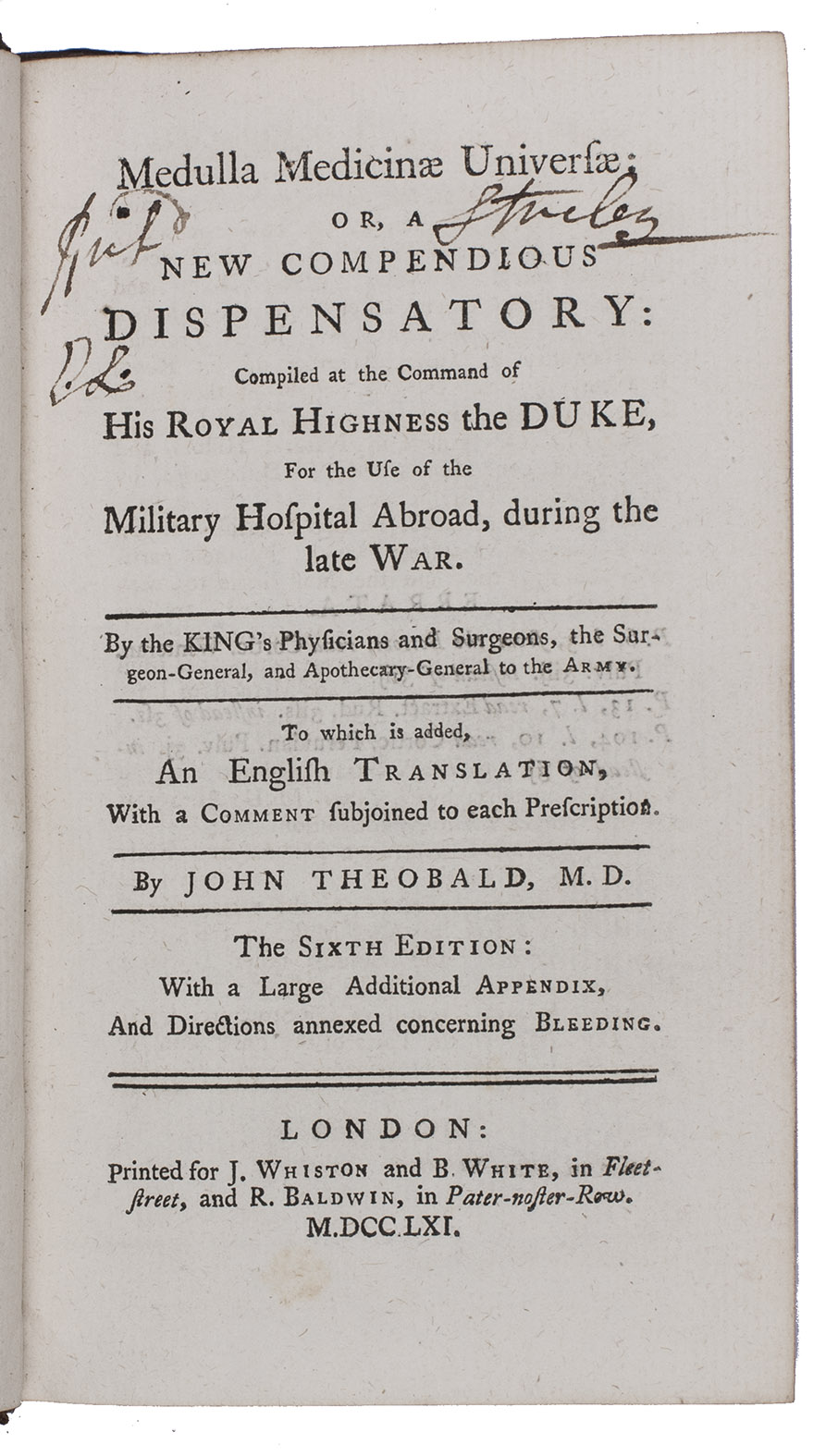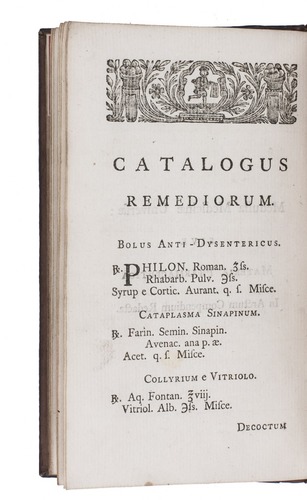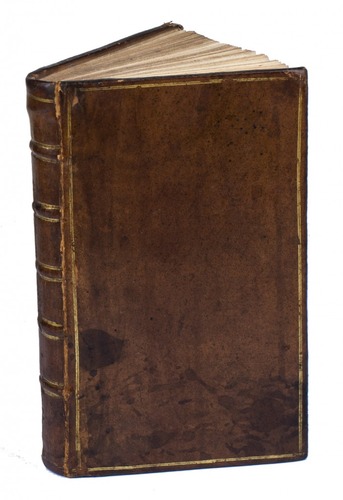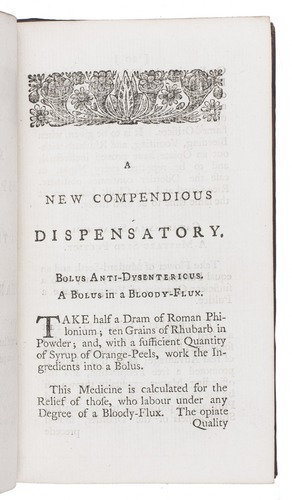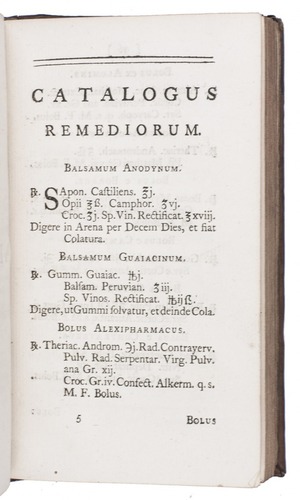THEOBALD, John (editor) [and John PRINGLE (compiler)].
Medulla medicinae universae: or, a new compendious dispensatory: compiled ... for the use of the military hospital abroad... The sixth edition.
London, J. Whiston, B. White and R. Baldwin, 1761. 12mo (16.5 x 9.5 cm). Contemporary calf, with gold fillets. [4], VII, [1 blank], 215, [1 blank] pp.
€ 350
Sixth edition of a dispensatory originally written for use at the British military hospital in Flanders during the War of the Austrian Succession (1740-1748). It was compiled by John Pringle (1707-1782), physician-general of the military hospital, with the help of the Scottish physician John Clerk. By order of the Duke of Cumberland (1721-1765), head of the army, the recipes in the dispensatory were fixed as standard for the army hospitals. Apparently on Cumberland's authority, the dispensatory was translated and annotated by John Theobald and published as the Medulla medicinae universae in 1747. In the introduction, Theobald particularly mentions the description of and cure for gonorrhoea (an illness "but superficially understood") as "very minutely and circumstantially handled". This due to the fact that the army hospital had a "long successful Practice in regard of that unlucky Disorder" (pp. vi-vii).
This sixth edition contains not only the original recipes for the army hospital, but also an appendix including variations on the recipes "as such sick frequently grow weary of the same identical Medicine" as well as variations for women and children, four pages of "directions for bleeding" (p. vi).
With ownership inscriptions and a small bookplate. WWith wormholes in the foot margin of the second half of the book, but with only a very minimal loss of text, restricted to the final two leaves and otherwise in good condition. The binding is stained at the sides and worn at the spine, the front hinge almost completely cracked, and the lower half of the first flyleaf detached.. Blake, p. 48; Kopperman, Theory and practice in eighteenth-century British medicine, pp. 56-57; Wellcome IV, p. 102.
Related Subjects:
